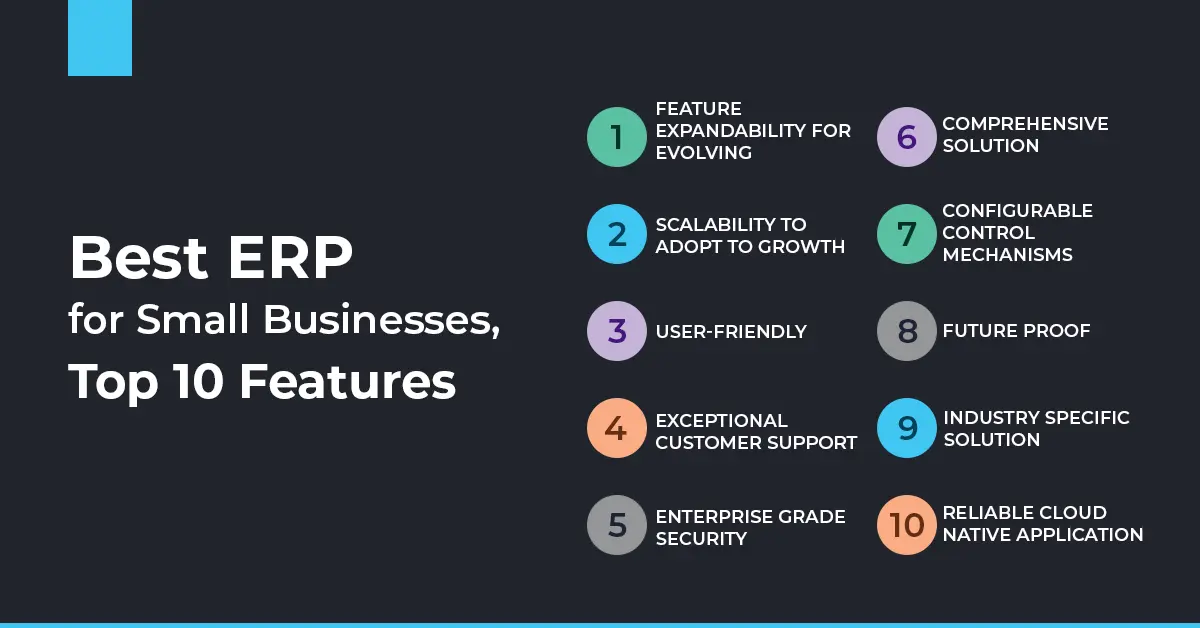
For small businesses, selecting the right Enterprise Resource Planning (ERP) system is a crucial decision for long-term success. ERP for a small business is not just a tool for today but also a foundation for tomorrow. Here are the key features that small businesses should look for when choosing an ERP system:
Small businesses would not have the need, priority and requirement to implement all features of a comprehensive ERP. However during the course of the growth journey, their needs will evolve, and they require an ERP that can accommodate new functionalities. Proteus Vision Autonomous Plugin ensures that any future requirements can be enabled instantly without disrupting existing operations.
Every small business is meant to be large some day. ERP should be able to adapt to growth. Changing ERP multiple times during the growing phase of a small business can hinder the growth potential. The best ERP systems for small businesses must offer scalability, where you can add new users, new business units, handle increased transaction volumes and incorporate additional processes without compromising on performance.
Comprehensive ERP systems designed for large organizations are often complex and require specialized skill to use, administer and maintain. ERP for small business must be intuitive and require minimal training so that any team member, without technical knowledge, should be able to administrate and use the system. Sophisticated AI-driven ERPs like Proteus Vision can interpret spoken language for various task executions such as transaction creation, data visualization and answering business queries.
Even for very user-friendly ERP, dependable customer support is critical. Growing businesses, in particular, need a supportive and approachable helpdesk that can address issues promptly.
Large organizations have dedicated teams to ensure data security and protection. Many small businesses don’t even have an IT team. Importance of data security is equally important for small organizations as the cybersecurity threats on the rise. ERPs such as Proteus Vision built with robust security features ensure peace of mind for the business owners.
It is a challenge for small businesses to use multiple softwares for different processes and integrate them, as this is a cumbersome and expensive process. This is not even an efficient way. A comprehensive ERP such as Proteus vision offers a unified platform that manages end to end business processes such as Finance, HR, Inventory, Sales, Customer Relations, Manufacturing, Planning, Warehouse Management, Plant Maintenance,Manufacturing Execution System, Quality Management, Self Service Portals and many others. This integration by design reduces complexity, streamlines processes, and eliminates the need for multiple software.
Each business owner evaluates its controls and checkpoints based on their business, most of all these keep evolving. SMEs need a solution where they can invoke these control measures as and when it is required. For example, you may not need detailed inventory controls today but may require them as you add more factories.
To begin with, check if the ERP is in tune with “current” technologies and is geared to adapt to “trending”. Your solution should not run on proprietary technologies and should be “open” with the ability to connect to other solutions, AI is the future, so ensure that the solution can leverage AI
You would come across vendors that mention that the ERP can “fit” any industry, though this may be partially true, it helps in reducing time, effort and cost if the solution has industry-specific templates This helps in easy and fast implementation with minimum customization
Some industries that may need specific solutions are
– Pharmaceuticals
– Food and Beverages
– Chemicals
– Construction
A cloud-native application is an application architecture that was designed only to work on the cloud. This helps in leveraging true cloud capabilities. True cloud solutions are highly resilient and have a better performance as compared to solutions that are designed to run on desktops and servers and are just hosted on the cloud.
Cloud-native solutions also put a lot of pressure on the vendor to make it run 24×7 without a glitch You are not singled out in a native cloud solution. You have the same experience as all the customers on that platform. Whereas, when a solution is hosted on the “cloud” your instance will be impacted or maybe running 2 versions behind as the vendor has not updated it giving you issues that others are not experiencing